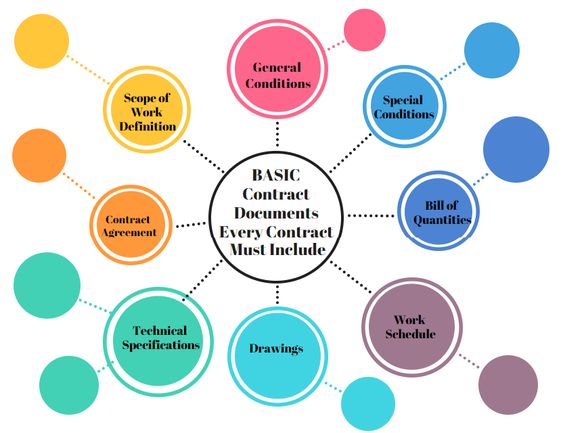Construction projects are complex and require effective management to ensure timely and successful completion. To achieve this, it is important to have a thorough understanding of the contract that governs the project. This article will guide you through the essential components of a construction project management contract.
Introduction: Understanding the Purpose of a Construction Project Management Contract
The first step in effective project management is understanding the contract that governs the project. A construction project management contract outlines the roles and responsibilities of each party involved in the project, as well as the scope of work, timeline, and budget. It addresses issues such as risk management, change management, and conflict resolution.
Key Components of a Construction Project Management Contract
A construction project management contract typically includes the following key components:
1. Scope of Work: This section outlines the specific work that will be performed by the contractor.
2. Schedule: This section outlines the timeline of the project, including key milestones and deadlines.
3. Budget: This section outlines the budget for the project, including payment terms and payment schedule.
4. Change Management: This section outlines the process for managing changes to the project scope, schedule, or budget.
5. Risk Management: This section outlines the process for identifying and managing risks associated with the project.
6. Quality Management: This section outlines the quality standards that must be met throughout the project.
7. Communication: This section outlines the communication protocols that will be used throughout the project.
8. Dispute Resolution: This section outlines the process for resolving disputes that may arise during the project.
Drafting a Construction Project Management Contract
Drafting a construction project management contract requires a thorough understanding of the project, as well as the legal requirements of the jurisdiction in which the project is taking place. It is advisable to engage the services of an experienced attorney who can guide you through the process and help you draft a contract that protects your interests.
Best Practices for Effective Construction Project Management
Effective project management requires more than just a well-drafted contract. The following best practices can help ensure the success of your construction project:
1. Establish Clear Communication Protocols: Clear and open communication between all parties involved in the project is essential for success.
2. Set Realistic Expectations: Setting realistic expectations for the timeline, budget, and scope of work can help avoid misunderstandings and conflict.
3. Monitor Progress: Regular monitoring of project progress can help identify and address issues before they become major problems.
4. Stay Flexible: Projects inevitably encounter unexpected challenges. Staying flexible and adaptable can help ensure the project stays on track.
5. Maintain a Positive Relationship with Contractors: Building a positive relationship with contractors can help ensure they are motivated to deliver high-quality work.
You might find these FREE courses useful
- Scrum Master Certification Exam Preparation
- Modalidades organizacionales ágiles en base a la MetodologÃa Scrum
- Combining Scrum with Other Agile Methodologies
- Scrum Master Certification: Scrum Methodologies
Conclusion: Prioritizing Effective Collaboration
Effective collaboration between all parties involved in a construction project is essential for success. A well-drafted construction project management contract is an important first step in achieving that collaboration. By clearly outlining roles, responsibilities, and expectations, it can help avoid conflicts and ensure the project stays on track. Effective project management requires ongoing attention and monitoring, as well as the willingness to adapt to unexpected challenges. By prioritizing effective collaboration and following best practices, you can increase the chances of a successful construction project.
